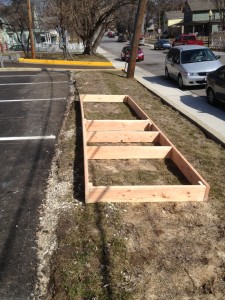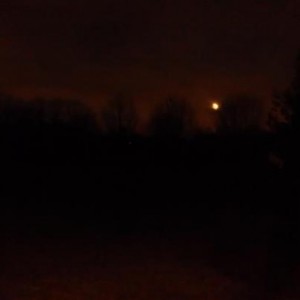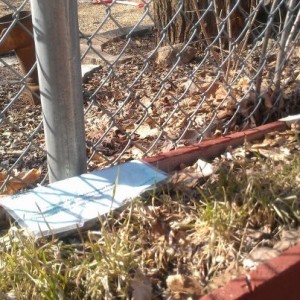If you were up early enough this week, you could watch the pope be installed. It was fascinating. I wrote to Paul, our ritual chair, and told him he better be watching…we might learn something for our own installations in June.
Now how is this relevant you might ask? Why should we watch how the Roman Catholic world treats their highest leader? Because this week we read about the installation of Aaron and his sons as the high priests of Israel.
Now I am not sure I have liked the term installation. To borrow part of a line, “What are we? Dishwashers?” Rabbi Nehemia Polen, Professor at Hebrew College and one of the leading experts in Chasidim, says, well maybe yes but the wrong kitchen appliance. He likens the entire book of Leviticus to a reset button—on a garbage disposal.
Now hear him out. To our modern ears Leviticus may seem nonsensical. It is all about the priestly rite and animal sacrifice. We don’t do that any more, not since the destruction of the Temple in 70CE. The traditional musaf service yearns for a return to Jerusalem and a rebuilding of the Temple complete with animal sacrifice. Sacrifice, in particular the korban, was seen as the way to draw close to G-d. The word korban itself comes from the root to draw close. You know the word, Keruv. Same shoresh, same root. For some of us moderns, musaf is hard because I am not sure we want to return to a sacrificial system. That is not how we draw close to G-d. We are lucky because our prayer book, Siddur Sim Shalom, has an alternative musaf service, the part below the line that talks about how Shabbat instead of praying for a return to animal sacrifice. Some of you have told me that is the portion you davven. So again, why does this matter?
Polen teaches that it does matter. The Israelites were trying to reconnect with G-d. They had had a powerful and direct experience of G-d’s presence in the wilderness. First with the signs and wonders, that mighty hand and outstretched arm that helped them get out of Egypt. Then the parting of the Red Sea. Then the giving of the Torah at Sinai. As I taught last night, Mekhitla, one of the earliest midrashim explains that even a lowly bondswoman, free from Egypt experienced G-d directly, saw G-d, at the parting of the Red Sea. Isaiah and Ezekiel only had visions. Powerful stuff.
This week we will read that we should tell our children on that day what the Lord did for me when I went forth from Egypt. Each of us it see ourselves as though we went forth from Egypt, out of the house of bondage, out of the narrow straights. Each of us was at the parting of the Red Sea and each of us stood at Sinai, even the generations yet unborn.
Remember standing at Sinai. You were scared. You trembled. You shielded your children. The mountain quaked. It smoked. It seemed to be on fire. You took a bath and remained pure for three days. You washed your clothes. You were warned. Don’t go near the mountain. Don’t touch it. Moses went up on the mountain.
Let’s look at this installation rite now. Aaron and his sons immersed in a mikveh. They put on special clothes. They isolated themselves for 7 days. They sprinkled the altar with water. They made a sacrifice so there was smoke and fire, a pleasing odor to G-d. They had a basket of matzah. They were anointed with special oil and maybe most surprisingly with blood from the sacrifice. The people stood outside of the Tent of Meeting. All of the elements were there of the experience of standing at Sinai. Of having that direct, powerful experience of the Divine.
All of the senses were involved. Smell, taste, touch, sight, hearing.
It was a powerful experience. It brought Aaron and his sons back into the Presence of the Divine. It brought the people closer to G-d. It had all the elements of receiving the Torah at Sinai. It is Rabbi Polen’s reset button.
But what does this have to do with us moderns. How do we push the reset button? How do we enter the presence of the Divine? How do we draw close to G-d without sacrifices? Without this complicated installation ritual? People in the congregation answered by doing acts of love and kindness. By doing mitzvoth. By praying.
So the pope was installed this week. If you watched any of the coverage you would have noticed many of these same elements. It was very intentional on the Church’s part. He was isolated, set aside from the time the white smoke appeared, he wore special vestments, a special head covering, lots of gold, there were the elements of communion—bread and wine which Catholics believe are the Passover sacrifice. The pope is the Catholic’s Aaron. He has drawn close to G-d and like Aaron will represent the people to G-d as well as being G-d’s representative here on earth.
When there is big news story, often Jews ask, “Is it good for the Jews or bad for the Jews?” It is too early to tell, but I am hopeful. He had a good reputation in Argentina with the Jewish community. He was outspoken when 85 people were killed by the terrorist bombing of the headquareters of the Jewish federation. He was the first to sign a petition 85 signatures for 85 people. The Jewish community has seen his commitment to dialogue as recently as December when he was the first to light one of the Chanukah candles at Temple Emanu-El. But as they have said, for him it is not just about the photo op. “He’s got a very deep capacity for dialogue with other religions,” Rabbi Alejandro Avruj told The Associated Press recalling the moment. “He spoke of light as renovation, of the re-inauguration of the temple of Jerusalem 2,200 years ago, and the need to carry light to the world.”
At a meeting of Jewish, Muslim, Buddhist and Hindu leaders, the new pope told the Jewish leaders, that Catholics and Jews are “bound by a very special spiritual bond,” and that he planned to continue the interfaith dialogue begun with the Nostra Aetate decree of the Second Vatican Council. He continued by saying that the “Catholic Church was “aware of the importance of the promotion of friendship and respect between men and women of different religious traditions. This I wish to repeat: the promotion of friendship and respect between men and women of different religious traditions.” Then, believe it or not, there was some joking. He turned to the Jewish leader sitting next to him, Rabbi Richardo DiSegni, the chief rabbi of Rome, and the pope said to him he had received a lot of information about DiSegni and that he knew he was very active on Facebook. It is a whole new world. His work will be difficult. There is much to clean up in the Catholic Church—the priest abuse scandal, its seeming disconnect between the people and the papacy on some modern social issues like abortion and birth control,
Tomorrow most of the Christian world will pause to mark Palm Sunday, the day they believe Jesus entered Jerusalem to celebrate Passover. We are busy preparing for Passover which begins Monday night. At this season in particular, where historically Jews were tortured, killed, by elements of the Catholic Church, where Jews had to have sederim in hiding, it would appear that the new pope is building on newer historical trend, that of working towards peace and understanding. Christians of many streams like to experience a seder. We have a group from a Lutherans coming to our community seder from Christ the Lord church. We have another group of leaders coming from FaithBridge. This will enrich our own understanding of our tradition. I am glad the new pope has come out so strongly for interfaith dialogue and understanding and that he has a proven track record in this regard. Yes, it matters what the pope does and says. Later, in our service, when we pray for the leaders of the world, let’s keep him in our kavanah. He will need help from all four corners of the world.



